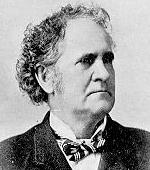 This site reprints Benjamin F. Shaw's 1846 lecture, Illegality of Slavery.
This site reprints Benjamin F. Shaw's 1846 lecture, Illegality of Slavery.
During the pre-Civil War slavery era, there were a number of abolitionists such as James Otis (1761), William Mansfield (1772), John Adams (pre-1776), Samuel May (1836), Salmon P. Chase (1837), George Mellen (1841), Alvan Stewart (1845), Lysander Spooner (1845), Joel Tiffany (1849), Lewis Tappan (1850), William Goodell (1852), Abraham Lincoln (1854), Edward Rogers (1855), William E. Whiting, LL.D., et al. (1855), Rep. Amos P. Granger (1856), and Frederick Douglass (1860), who provided analyses on slavery law. They provided evidence showing that pursuant to common law, centuries of precedents, and constitutional and legal principles, slavery was unconstitutional, and illegal as well, pursuant to anti-kidnaping laws. The legal principles they relied on dated back to the Magna Carta and habeas corpus, which banned indefinite detentions without due process, e.g., banning detentions without charges verified by conviction in a jury trial. Preparatory to your reading this site, reading the historical and constitutional law overview, and/or some or all the above authors' writings, may be helpful. Benjamin Shaw was an abolitionist lecturer. This site reprints his lecture "Illegality of Slavery." After you read it, feel free to join the discussion forum. Shaw's lecture provides in a brief overview, conversational- and debate-style, some of the many principles making slavery unconstitutional. References are to then well-known constitutional provisions, prominent officials, the 1793 Fugitive Slave Act, etc., as would be known then to American audiences. |
Illegality of Slavery
by
Benjamin Shaw
(Boston: 1846)

